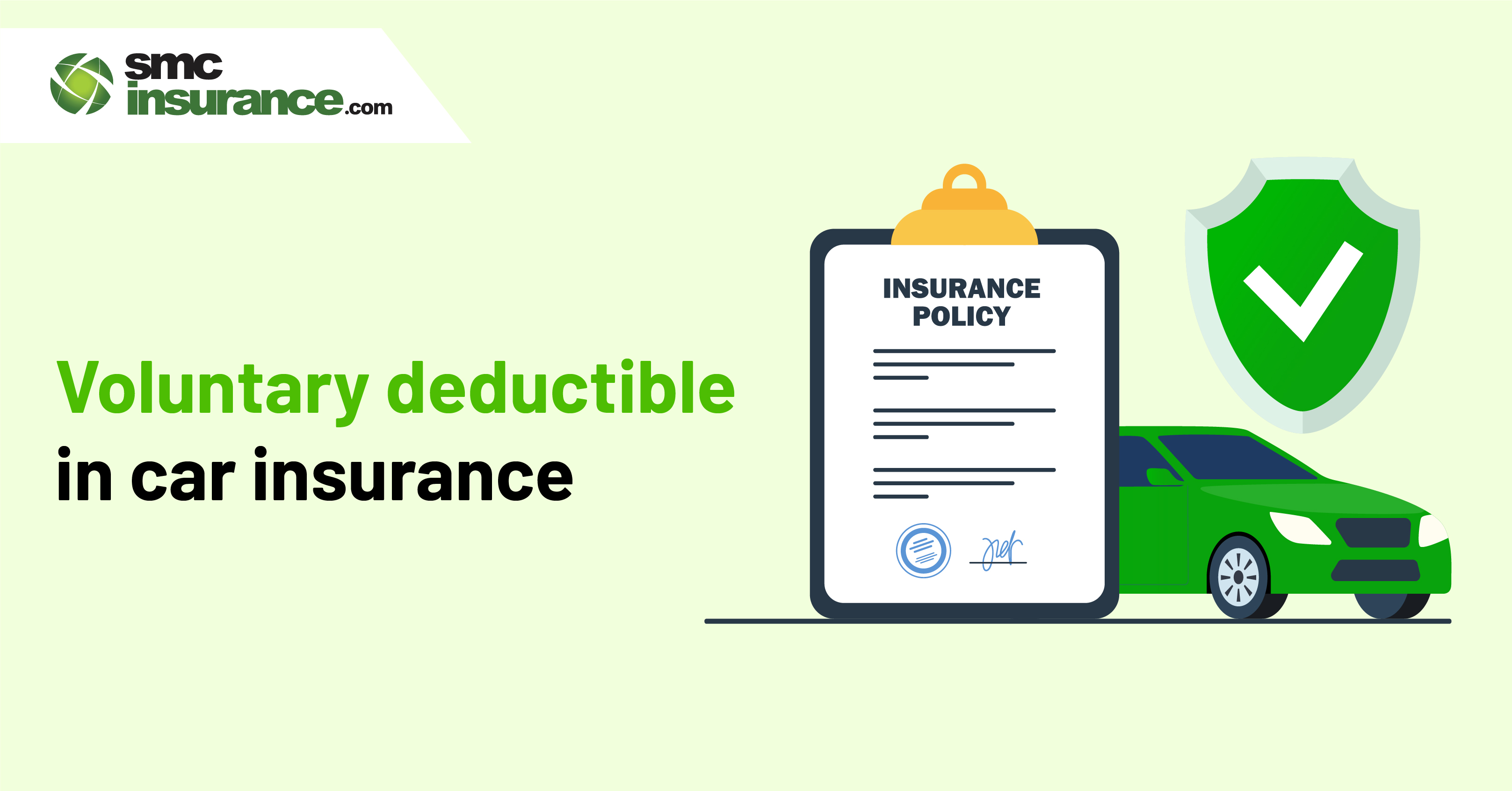Suppose, you have bought a brand new car and as mandated by the law, you have also got a motor insurance policy to protect it. You are an efficient and responsible driver, so you’re not worried about the car. However, as inflation surges across the world, you are really worried about paying the insurance premiums. Ensuring that you get enough coverage for an affordable premium is essential in this situation.
This is where a Voluntary Deductible - one of the easiest ways to reduce insurance premium - comes to your rescue.
Just like your third-party policy protects you and your car from financial and legal liabilities, Deductibles protect insurers against unnecessary claims. A Voluntary Deductible ensures that you are more careful with your car as you have to bear a certain amount of expenses. And if you are a good driver, you will profit from this option, as it will eventually save you a considerable amount on your premiums.
So how does this work? Let’s find out!
What is a Voluntary Deductible?
It is the amount of claim you opt to share with the insurance company, in exchange of a discount.
When you opt for a Voluntary Deductible you are basically taking responsibility for a part of the claim. This significantly reduces the chances of making claims, and hence, insurers offer a discount when you go for this deductible.
Get Your Car Insurance Premium Now
Who Can Opt for Voluntary Deductible ?
Voluntary deductible should be opt by you:
- If you do not use your vehicle often, and you know you haven’t claimed for years together.
- You don’t usually make small claims. You just want protection against large financial losses like big damages or theft.
- If you want to reduce your premium.
Note, this feature is not useful for people who are exposed to frequent damages and hence, make claims frequently, would be on a loss side.
How does a Voluntary Deductible Work?
- If you are buying the policy through an offline route, from an agent or through a branch - you will need to inform the insurer about this.
- If you are buying it online, you can choose the voluntary deductible while buying the policy.
- Once you select the Voluntary Deductible, you will get a proportionate discount. So, if you choose a higher deductible, you get a higher discount. Conversely, if you choose a lower deductible, you get a lower discount.
- When a claim is made in the future, you will have to pay the selected voluntary deductible before the insurer pays any amount for the claim.
Voluntary Deductibles and Their Discount Percentage
The table below gives you an overview. Please note that the discounts may differ across insurance companies, so always check with your insurer before opting for any voluntary deductible.
| Voluntary Deductible Amount | Discount Percentage On Premium |
| Rs.2500 | 20% discount on Own Damage premium up to a maximum of INR 750 |
| Rs.5000 | 25% discount on Own Damage premium up to a maximum of INR 1,500 |
| Rs.7500 | 30% discount on Own Damage premium up to a maximum of INR 2,000 |
| Rs.15000 | 35% discount on Own Damage premium up to a maximum of INR 2,500 |
Get Your Car Insurance Premium Now
Compulsory Deductible V/S Voluntary Deductible
Both the deductibles have their own significant features. Hence, their differences have been drawn out in the following table, for a better understanding.
| Compulsory Deductible | Voluntary Deductible |
| It is the amount that is fixed by the insurer based on your vehicle engine capacity. | This amount is chosen by you, if you wish to opt for it. |
| The compulsory deductible does not affect the premium; it remains the same. | Higher the voluntary deductible, lesser the premium you pay. |
| No discount is available here. | Discount on premium is available. |
| It is a predetermined amount that has to be paid compulsorily by you in case of a claim. | It is a predetermined amount that has to be paid voluntarily by you in case of a claim. |
Here is an example to put things into perspective.
Suppose, a collision accident has caused some major frame damage to Yashi’s car. She needs to raise an insurance claim of Rs 20,000 to repair it. Her car has an engine capacity of 1400 CC and the voluntary deductible amount set by her is Rs. 5000.
A point to be noted: If the engine capacity of your car is below 1500 CC (Cubic Capacities), you will need to pay Rs. 1000 as the Compulsory Deductible.
So in this case, Yashi’s Compulsory Deductible amounts to Rs. 1000.
Voluntary Deductible = Rs. 5000
Therefore, the insurer will offer -
Rs. 20,000 - (1000 + 5000)
= Rs. 20,000 - 6,000
= Rs. 14,000
Hence, the insurer will offer Yashi Rs. 14,000 to repair her car damages, and the rest of the amount, i.e. Rs. 6,000 (Rs. 1,000 of Compulsory Deductible + Rs. 5,000 of Voluntary Deductible) has to be paid by her.
Please note that this example does not consider depreciation and consumables amount, and has been simplified for an easier understanding.
Voluntary Deductible is a great way to reduce the premiums of your car insurance and proves to be really beneficial in the long run. So if you are an efficient, experienced driver and have a sufficiently large emergency fund available, you can opt for a higher voluntary deductible. On the other hand, if you live in an accident-prone area, not opting for the voluntary deductible would be more prudent as it will financially drain you every time whenever you make a claim. The amount of voluntary deductible you opt for will always depend on your comfort level and choice.



